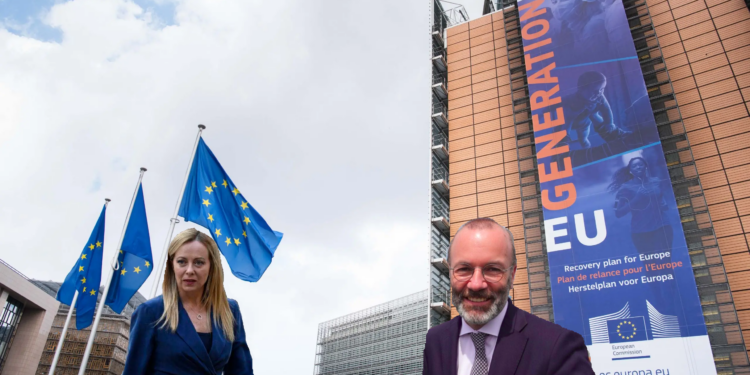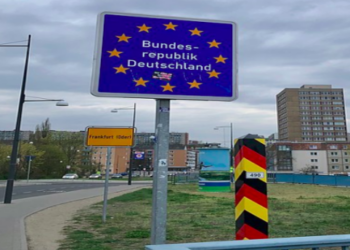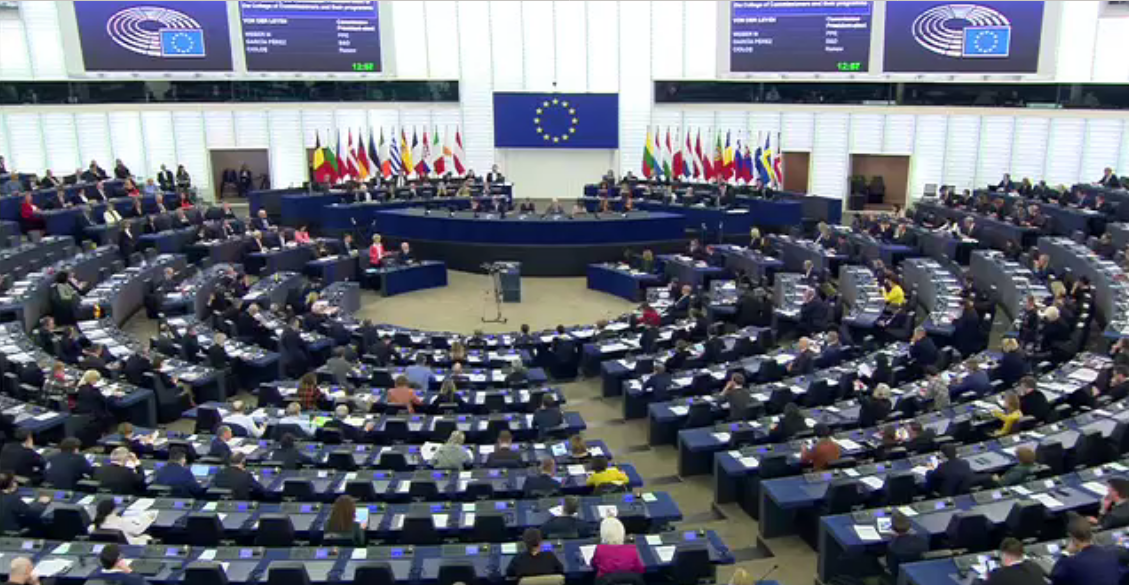Brussels – Giorgia Meloni attempts reconciliation. The Council president is meeting in Rome with Manfred Weber, President of the European People’s Party (EPP) and, more crucially, EPP group leader in the European Parliament tasked with scrutinising the commissioners nominated by the countries for the second von der Leyen Commission.
The purpose of the meeting is to secure the support of the Parliament’s main party, which is inevitably crucial in forming the new EU executive. The EPP is the leading group, and if Meloni wants to avoid being tripped by liberals, socialists, or greens, she will have to make friends with the populars. That is precisely the point, the crux of the confrontation: to rebuild a climate and a relationship of trust that has broken down.
The premier had abstained on a second term for Ursula von der Leyen at the June leaders’ summit, while her party members in the European Parliament even voted against the outgoing president nominated by the Populars for a second term. It was a real slap in the face to the EPP, now badly needed to advance the Italian ambitions for an important role in the cabinet of Ursula von der Leyen, whom Fratelli d’Italia and its leader failed to support.
Meloni knows the meeting is as necessary as ever. However, Raffaele Fitto—up for nomination but not yet formalised—is a name with a good chance of approval. The current Minister for European Affairs has good relations with Weber and is well-regarded within the EPP, even though he is an exponent of the Conservatives (ECR). The vetting that the Parliament, first in the relevant committee and then in the plenary, will have to do on the commissioners nominated by the governments is crucial. Putting Fitto in trouble or, worse, in the position of being rejected would undermine Italian ambitions and would be a blow to Meloni and her leadership.
Weber is already in Rome for institutional engagements. He is scheduled to meet with Antonio Tajani, Foreign Minister and Vice President of the European People’s Party, an occasion for an internal EPP consultation that opens the door to a meeting with Meloni, which may not even be face-to-face. Tajani is expected to be there as a guarantor for a new course of political cooperation that is needed more than ever with the EPP.
Of course, it will also be an opportunity to discuss other issues, from foreign policy to specific European dossiers such as immigration and the Green Deal, which the Italian majority parties would like to recalibrate. Still, Parliament’s role in supporting the commissioners-designate seems to occupy more space on the agenda, not least because of the role Weber can play. Parliament has less say than the Commission and Council on issues related to reforms and public accounts, and any brief to commissioners is and remains Ursula von der Leyen’s decision.
However, obtaining approval for a credible candidate would aid, in no small measure, in obtaining the vice presidency that Italy claims insistently. Technical thaw tests are therefore being staged in Rome. Meloni seeks assurances on a pass for her commissioner, but she must convince Weber that the EPP can trust her and her troops in Europe when the time comes. It is a delicate appointment but an obligatory one. New alliances must be forged after the “no” to von der Leyen that the Populars did not like.
English version by the Translation Service of Withub


![[foto: imagoeconomica]](https://staging.eunews.it/wp-content/uploads/2024/08/pnrr-meloni-350x250.png)







